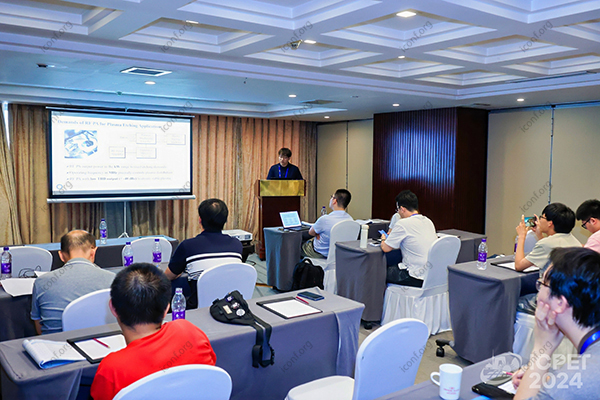In the evolving world of chemical research, contributing to academic discourse is key to driving innovation and advancing the field. Responding to a Chemistry Call for Papers (CFP) gives you the opportunity to showcase your breakthrough ideas and cutting-edge experiments while connecting with global scholars, industry leaders, and policymakers. This guide outlines proven strategies for crafting an outstanding submission and explains how iconf.org can serve as your essential resource for academic success.

What is a Chemistry Call for Papers?
A Chemistry CFP is an invitation for researchers to submit original, unpublished work to academic conferences. These calls typically focus on themes such as:
Synthetic Chemistry: Novel synthetic methodologies and organic reactions.
Analytical Techniques: Advances in detection, quantification, and analytical instrumentation.
Materials Chemistry: Research on innovative materials, catalysts, and nanomaterials.
Environmental & Green Chemistry: Sustainable practices and eco-friendly chemical processes.
Why It Matters:
Visibility: Present your findings to an international audience to boost your academic profile.
Collaboration: Engage in interdisciplinary partnerships and expand your research network.
Feedback: Receive constructive insights from experts to refine your work.
Impact: Influence future research trends and industrial practices through high-quality contributions.
Global Exposure:
Amplify your research by sharing it with a worldwide community of experts.
Interdisciplinary Collaboration:
Work alongside chemists, material scientists, and environmental engineers to explore innovative solutions.
Professional Growth:
Enhance your curriculum vitae with peer-reviewed presentations and publications that drive career advancement.
Innovative Progress:
Contribute novel ideas and methodologies that push the boundaries of chemical sciences.
1. Understand the CFP Requirements
Review Thoroughly:
Read the CFP document carefully to understand the thematic focus and formatting specifications.
Adhere to Deadlines:
Mark key dates on your calendar and plan your writing, revisions, and final submission accordingly.
2. Craft a Compelling Abstract
Clear & Concise:
Summarize your research question, methodology, key findings, and significance in a brief, engaging abstract.
Keyword Integration:
Naturally include SEO-friendly terms such as “chemistry research” and “innovative synthesis” to boost online visibility.
3. Structure Your Manuscript Effectively
Use a Standard Format:
Organize your paper using the IMRaD structure (Introduction, Methods, Results, and Discussion) for clarity and logical flow.
Incorporate Visuals:
Enhance your submission with high-quality figures, graphs, and tables that support and illustrate your data.
4. Emphasize Originality and Impact
Highlight Novelty:
Clearly detail how your research advances existing knowledge and introduces new techniques.
Discuss Applications:
Explain the real-world implications, such as improved industrial processes, sustainable methods, or new materials development.
5. Ensure Professional Presentation
Proofreading & Editing:
Utilize professional editing services to ensure your manuscript is error-free and polished.
Strict Compliance:
Follow all CFP formatting and submission instructions to maximize your chance of acceptance.
For researchers aiming to make a significant impact in the field of chemistry, iconf.org is your premier academic platform. Here’s how iconf.org can help:
Centralized CFP Listings:
Access an extensive, curated database of international Chemistry CFPs, saving you time and effort.
Expert Guidance and Best Practices:
Benefit from detailed submission guidelines, tips, and success stories from leading researchers.
Global Networking Opportunities:
Connect with a vibrant community of academics and industry professionals ready to collaborate on interdisciplinary projects.
Integrated Academic Resources:
Explore a rich repository of high-quality journals, conference proceedings, and datasets that support and enhance your research work.
Responding to a Chemistry Call for Papers is more than just a submission process—it’s a strategic endeavor to push the boundaries of chemical research and drive sustainable innovation. By applying these best practices and leveraging the comprehensive support available on iconf.org, you can significantly elevate your research profile and contribute meaningfully to the global scientific community.
Take action now—prepare your CFP submission, connect with international experts, and let your research shape the future of chemistry. Visit iconf.org today to explore additional resources and unlock new opportunities for academic excellence and collaboration.